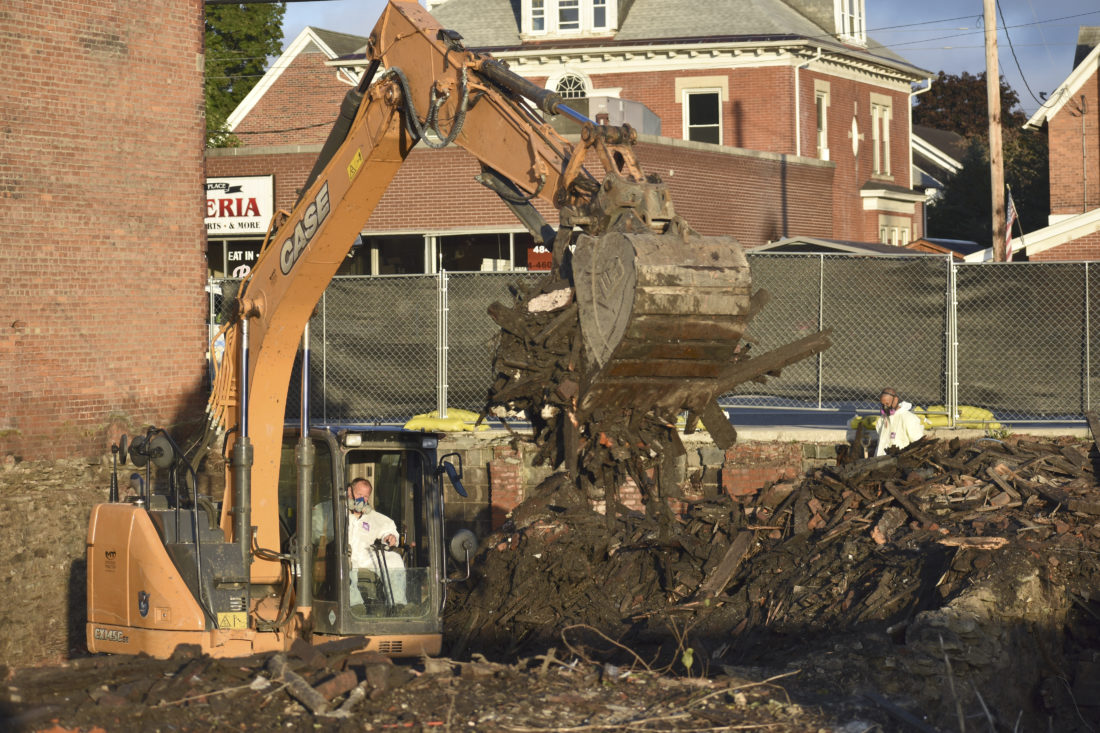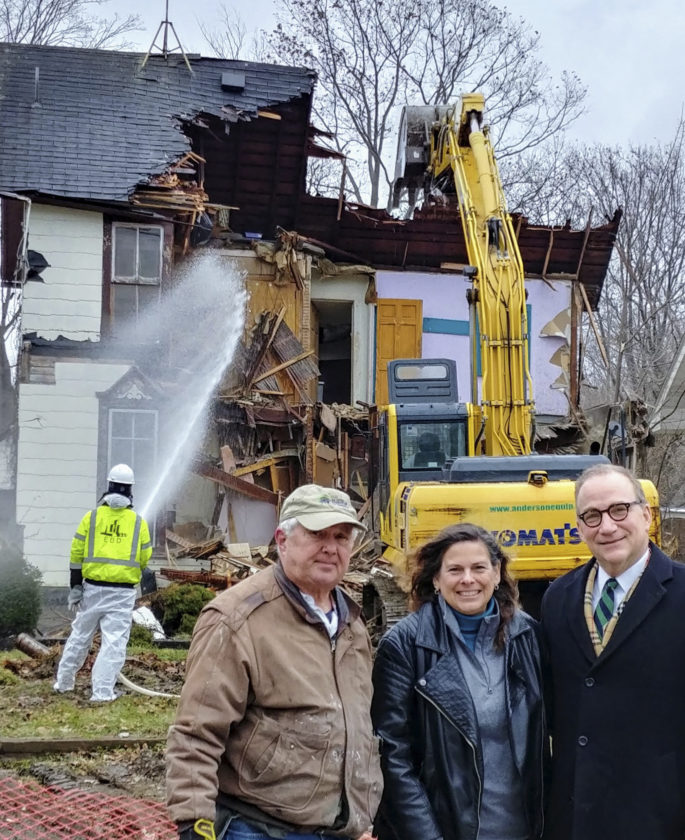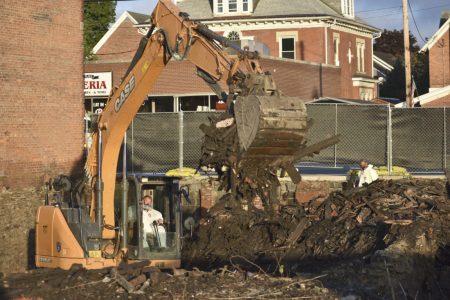Lack Of Funds May Hamper Razing Of Dilapidated Properties
- The Chautauqua County Land Bank Corp. was one of the community partners who collaborated to clean up the Main Street property in Falconer that was destroyed by fire in 2017. All of the the land bank’s state funding it has received for demolitions throughout the county has been allocated. P-J file photo
- From left, David Kurzawa, Chautauqua Area Habitat for Humanity president, Gina Paradis, Chautauqua County Land Bank Corp. executive director, and Vince DeJoy, former Jamestown development director, in front of a demolition project on Babcock Street in Silver Creek. Submitted photo
- A house being demolished through work done by the Chautauqua County Land Bank Corp. Submitted photo

The Chautauqua County Land Bank Corp. was one of the community partners who collaborated to clean up the Main Street property in Falconer that was destroyed by fire in 2017. All of the the land bank’s state funding it has received for demolitions throughout the county has been allocated. P-J file photo
With the likelihood of a Chautauqua County Tax Foreclosure Action being held this year for the first time in three years, the Chautauqua County Land Bank Corp. is facing a dilemma it hasn’t faced before.
During the land bank’s regular monthly meeting Wednesday, the board discussed the foreclosure action and how it should handle acquiring properties that need to be demolished. Gina Paradis, land bank executive director, told The Post-Journal that because state funding from the Office of the Attorney General has been allocated, there is no more money for demolitions.
“Unfortunately our demolish money is spent,” she said. “We have no guarantee for additional money for demos.”
Since 2013, the land bank has received four different grants from the state Office of the Attorney general to operate programs like assisting municipalities with demolishing dilapidated houses. During the first round of funding in 2013, the county received $1.5 million. During the second round of funding in 2014, the county received $1.3 million. During the third round of funding in 2017, the county received $1.1 million.
The land bank in November 2018 received $2 million from the state during the fourth round of funding. In 2020, the land bank received an additional $500,000 in funding from the state as part of a second phase of funding during the fourth round.

From left, David Kurzawa, Chautauqua Area Habitat for Humanity president, Gina Paradis, Chautauqua County Land Bank Corp. executive director, and Vince DeJoy, former Jamestown development director, in front of a demolition project on Babcock Street in Silver Creek. Submitted photo
The money that the Attorney General’s Office, which is administered by Enterprise Community Partners and LISC, has been able to provide state land banks was secured through settlements with the nation’s largest banks over misconduct that contributed to the housing crisis more than a decade ago.
With the uncertainty there will be a fifth round of funding and no dedicated money in the state budget for land banks, it’s unknown if any future funds from the state will be allocated locally.
“Our ability to pull properties out for demo will be restricted,” she said. “We are working on how to approach that whole issue. Generally, 25 to 30 properties we pull from that auction that need to be demolished.”
Another issue is if the land bank pulls a property from the auction, they have to take title to the land, which becomes a liability and maintenance issue.
“If we cannot (demolish a house) because we have no funds for demos that is a huge risk management issue for us,” she said.

A house being demolished through work done by the Chautauqua County Land Bank Corp. Submitted photo
Last month, Paradis said she expected there to be more properties available in the foreclosure auction for the land bank than in typical years because the auction hasn’t been held the past two years because of the pandemic.
“Certainly there is a snowballing effect not having the auction the last couple of years,” she said. “So you are going to have the average that you would have each year added up.”
Also with the state’s two-year moratorium on evictions during the pandemic, Paradis said there could be an increase in the number of foreclosures available for homeowners who didn’t keep up with their mortgage payments.
“I think the pandemic has made matters worse,” she said. “Those individuals who put off paying their mortgages are likely in a situation where they have so much money that they owe they can’t reconcile.”
Paradis said the state does offer an Emergency Rental Assistance Program to help those struggling to pay their mortgage.
“There is a hardship application people can apply for if they are getting a foreclosure notice,” she said.









